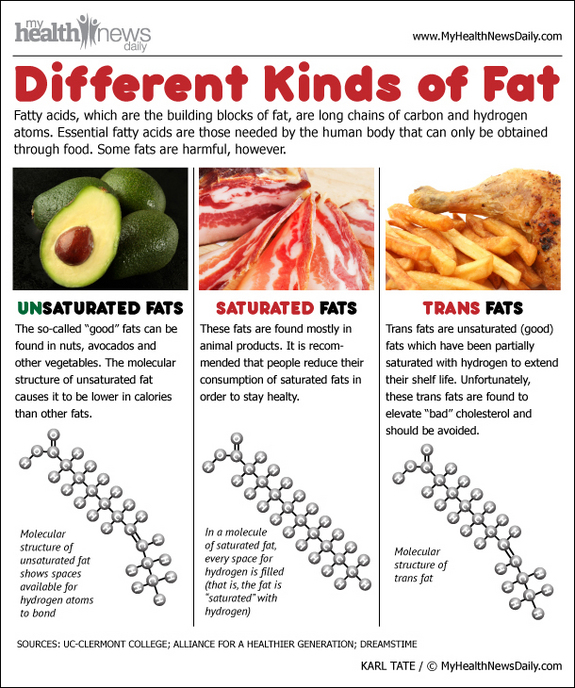WHO for Eliminating Trans Fats 14/05/2019 – Posted in: Daily News – Tags: fatty acids, IFBA, trans fats, WHO
WHO FOR ELIMINATING TRANS FATS
For: Preliminary
Topics covered: Trans Fats, Fatty Acids, International Food and Beverage Alliance, WHO
News Flash
World Health Organisation (WHO) is ready for eliminating the industrially produced trans fats from the global food supply by 2023.
Highlight
- The WHO has welcomed its partnership with the International Food and Beverage Alliance (IFBA) to achieve this target.
- IFBA members to ensure that the amount of industrial trans fat (iTFA) in their products does not exceed 2 gram of iTFA per 100 g fat/oil globally by 2023.
- Actions to eliminate industrial trans fats, and reduce salt, sugar and saturated fats in processed foods.
- The meeting also stressed the value of regulatory action on labelling, marketing and called industry to full adherence to the WHO Code of marketing of Breast Milk Substitutes.
India’s stand
- India has among the highest number of coronary heart disease cases in the world.
- Medanta Hospital founder and heart surgeon Naresh Trehan said that we (India) must try to beat this deadline of 2023.
Why this step needed?
- Trans fat, also called the worst form of fat in food, responsible for over 5,00,000 deaths globally from coronary heart disease each year.
- Eliminating industrially produced trans fat is one of the most effective ways to save lives and create a healthier food supply.
Trans Fats
There are two broad types of trans fats found in foods: naturally-occurring and artificial trans fats.
- Naturally-occurring trans fats are produced in the gut of some animals and foods made from these animals (e.g., milk and meat products) may contain small quantities of these fats.
- Artificial trans fats (or trans fatty acids) are created in an industrial process that adds hydrogen to liquid vegetable oils to make them more solid.
Why do some companies use trans fats?
- Trans fats are easy to use.
- They are inexpensive to produce and last a long time.
- Such fats give foods a desirable taste and texture.
- Trans fats also used to deep-fry foods because oils with trans fats can be used many times in commercial fryers.
Health Issues
- Trans fats raise your bad (LDL) cholesterol levels and lower your good (HDL) cholesterol levels.
- Eating trans fats increases your risk of developing heart disease and stroke.
- It is also associated with a higher risk of developing type 2 diabetes.
Trans Fat History
- 1890s: Paul Sabatier develops the hydrogenation process. He was a French chemist whoc became a Nobel laureate in 1912.
- 1902: Scientisr Wilhelm Normann finds that liquid oil can be hydrogenated to form trans fatty acids. He patents the process. Trans fat is the first man-made fat to join our food supply.
- 1911: Procter & Gamble introduces Crisco vegetable shortening in grocery stores. Crisco becomes the first of many manufactures food products containing trans fat.
- 1937: World Was II begins, and the United States becomes involved at the end of 1941. As the war progress, the use of margarine rises sharply because of butter is rationed.
WHO
The World Health Organization is a specialized agency of the United Nations that is concerned with international public health. It was established on 7 April 1948, and is headquartered in Geneva, Switzerland. The WHO is a member of the United Nations Development Group.
International Food and Beverage Alliance
IFBA was founded in 2008 by the CEOs of leading food and non-alcoholic beverage companies to empower consumers to eat balanced diets and live healthier lives, in support of the World Health Organization’s efforts to improve global public health.
IFBA have expanded their actions over the years through a series of core commitments designed to support the World Health Organization’s 2004 Global Strategy on Diet, Physical Activity and Health and the 2011 UN Declaration on the Prevention and Control of NCDs, among others.
The Alliance proactively report its progress to the public annually, and collaborate with all involved to find bold, smart, diverse solutions to address global health challenges.
Source: The Hindu
You can follow us on LinkedIn and for more updates related to UPSC IAS Preparation, Like our Facebook Page and subscribe our Diligent IAS Youtube Channel



